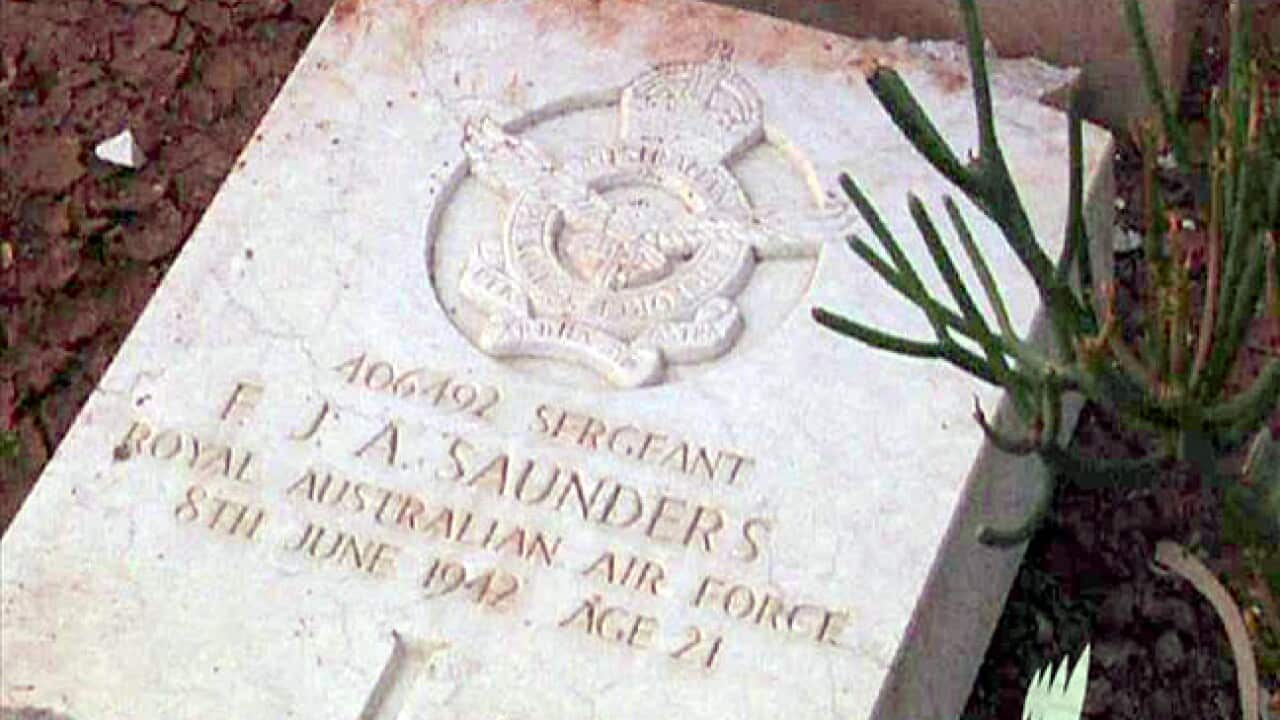SBS' Yaara Bou Melhem describes what it feels like to walk past desecrated war graves in Benghazi - and says she didn't see a single Australian tombstone left untouched.
Graveyards are generally eerie in and of themselves. So it didn't help that as we approached the Benghazi Commonwealth War Cemetery in Libya the sun was just going down.
It was an open-plan graveyard and from the footpath 10 metres away you could see row upon row of headstones, senselessly destroyed. As we walked through a small unlocked gate as high as our knees to enter the cemetery, my Libyan producer, Osama Al Fitory sombrely said in English, "This is so shameful".
I recognised the graveyard immediately from YouTube footage showing a group of religious extremists raging through the site and desecrating the headstones of Commonwealth servicemen who died in North Africa during World War II. The rampage was reportedly in retaliation for the burning of the Koran at a US base in Afghanistan last month.
At that stage it was still unclear if any Diggers' headstones had been damaged, so I started moving through the rows of graves looking for names and insignia that might be Australian.

Then I found them. The fallen Australian servicemen lay in two rows towards the back of the cemetery.
All 55 of their headstones had been destroyed. As I walked through counting the number of Australian graves, I noted fallen headstones belonging to Sergeant F. J. A Saunders of the Royal Australian Air Force, Age 21, Private S. A Richardson of the Australian infantry, Age 21 and an unknown Australian soldier.
It's unclear if the Islamists who desecrated the headstones targeted Australian graves, but it seems highly unlikely.
The section where the Australian soldiers were buried started a little further back from the rest of the Commonwealth servicemen. It may have simply provided more room for a group of people to be filmed as they milled around and smashed the headstones.
It was perhaps just an unfortunate coincidence that all of the Australian headstones were desecrated. A Libyan man who saw me outside the graveyard approached me. "We're sorry. These men are animals, and we are really ashamed," he said.
These sentiments were echoed by a shopkeeper across the road from the cemetery - the disgust in Australia over the desecration seems to be matched by the locals here, too.
“We need to show this happened because it's the only way we can improve,” Osama Al Fitory tells me.
There are bound to be many stumbling blocks in creating a "new Libya" after violently shaking off more than four decades of a dictator's rule. Libya is still trying to figure itself out.
But if Osama's optimism for reform is anything to go by, there is hope for a better Libya yet.
Share

